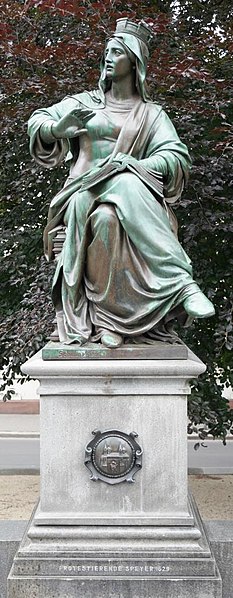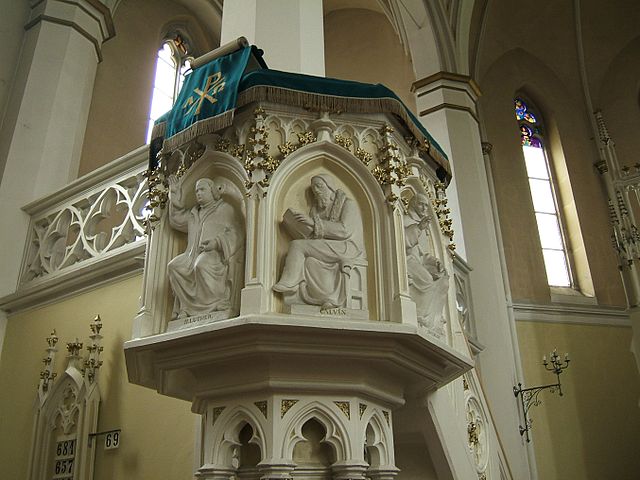Jovinian was an opponent of Christian asceticism in the 4th century and was condemned as a heretic at synods convened in Rome under Pope Siricius and in Milan by Ambrose in 393 because of his views. Our information about him is derived principally from the work of Jerome in two books, Adversus Jovinianum. Jerome referred to him as the "Epicurus of Christianity". He was a native of Corduene, in present day Turkey. John Henry Newman called Aerius of Sebaste, Jovinian and Vigilantius the forerunners of Protestantism, likening them to the "Luther, Calvin, and Zwingli of the fourth century". Other Protestants also praise Jovinian as an early reformer or even credit him as the "first Protestant". Jovinian's teachings received much popular support in Rome and Milan and his followers Sarmatio and Barbatianus kept preaching his ideas after Jovinian was expelled.
Imaginary portrait, c. 1700
Protestantism is a branch of Christianity that emphasizes justification by God through faith alone, the teaching that salvation comes by unmerited divine grace, the priesthood of all believers, and the Bible as the sole infallible source of authority for Christian faith and practice. The five solae summarize the basic theological beliefs of mainstream Protestantism.
The door to All Saints' Church in Wittenberg, where Martin Luther allegedly posted his Ninety-five Theses in 1517 detailing his concerns with what he saw as the Catholic Church's abuse and corruption. The Ninety-five Theses gave rise to Christian Protestantism as one of the world's primary religions, making Wittenberg the "cradle of Protestantism".
Memorial Church, finished and consecrated 1904, in Speyer, Germany commemorates the Protestation.
The Protesting Speyer, part of the Luther Monument in Worms, Germany
Two central figures of the Protestant Reformation, Martin Luther and John Calvin, depicted on a church pulpit; both Luther and Calvin emphasized making preaching a centerpiece of worship.





